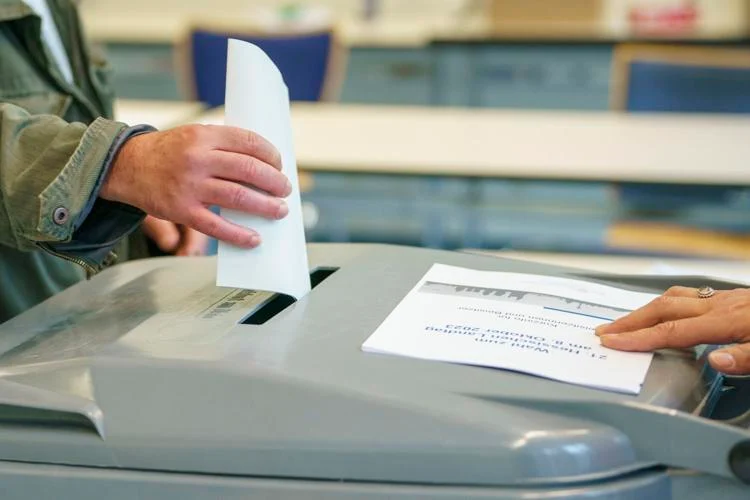
Germany’s center-right opposition was set to win two state elections on Sunday at the halfway mark of Chancellor Olaf Scholz’s unpopular national government, according to exit polls, which showed gains for a far-right party.
Germany’s national interior minister, who had faced an uphill struggle in a bid to become governor of her home region, appeared headed for a heavy defeat.
About 9.4 million people are eligible to vote for the new state legislature in Bavaria and around 4.3 million in neighboring Hesse, a region that includes Germany’s financial capital, Frankfurt. Both states are led by the country’s main opposition Union bloc, made up of the Christian Democratic Union and the Bavaria-only Christian Social Union.
Exit polls for ARD and ZDF public television showed the CSU, which has led Bavaria since 1957, on course to extend that run with support of around 37% — little changed from five years ago and around 20 points ahead of its nearest rival. In Hesse, the CDU was seen winning about 35% of the vote, making gains and also far ahead of its rivals.
The far-right Alternative for Germany party, which has risen to second place in national polls behind the Union, won’t be a factor in determining the new governments of Bavaria or Hesse, as other parties refused to work with it. But the exit polls showed it winning 15% to 16% of the vote in Bavaria and 16% to 17% in Hesse, improving on double-digit showings when those two states last voted in 2018.
But neither party looked to be anywhere near challenging the CDU’s 24-year hold on the job. Exit polls showed them on about 16%, vying with Alternative for Germany, or AfD, for second place.
Scholz’s governing coalition has turned off voters with repeated public squabbling, notably on a plan to replace fossil-fuel heating systems with greener alternatives.
The exit polls pointed to the Free Democrats falling short of the 5% support needed to stay in Bavaria’s state legislature and uncertain of hitting that mark in Hesse. Previous election flops for the party have fueled tensions in the national government.
“We do a lot of good things with each other and talk them down at times,” said Omid Nouripour, the Greens’ national co-leader. And he said that “above all, AfD’s results are alarming and we must do everything to win back confidence.”
The general secretary of Scholz’s party, Kevin Kuehnert, acknowledged that there was “a message to Berlin” in losses for all three governing parties in two states.
Scholz’s government also faces intense pressure to reduce the number of migrants arriving, a major issue ahead of elections.
Faeser, who leads the federal government’s response on that issue, said the result in Hesse was “very disappointing.” She had made clear before the election that she would only return to Hesse if elected as governor.
In Bavaria, governor Markus Soeder has called for voters to back “continuity and stability.”
He has bet on continuing his current coalition with the Free Voters, a conservative party that is strong locally but isn’t represented in the national parliament. Soeder decided last month to keep that party’s leader, Hubert Aiwanger, as his deputy governor despite a furor that started with allegations — denied by Aiwanger — that he was responsible for an antisemitic flyer when he was a high school student 35 years ago.
Soeder is widely considered a potential candidate to challenge Scholz in 2025, although he has denied such ambitions. A respectable result on Sunday would underscore his standing.




